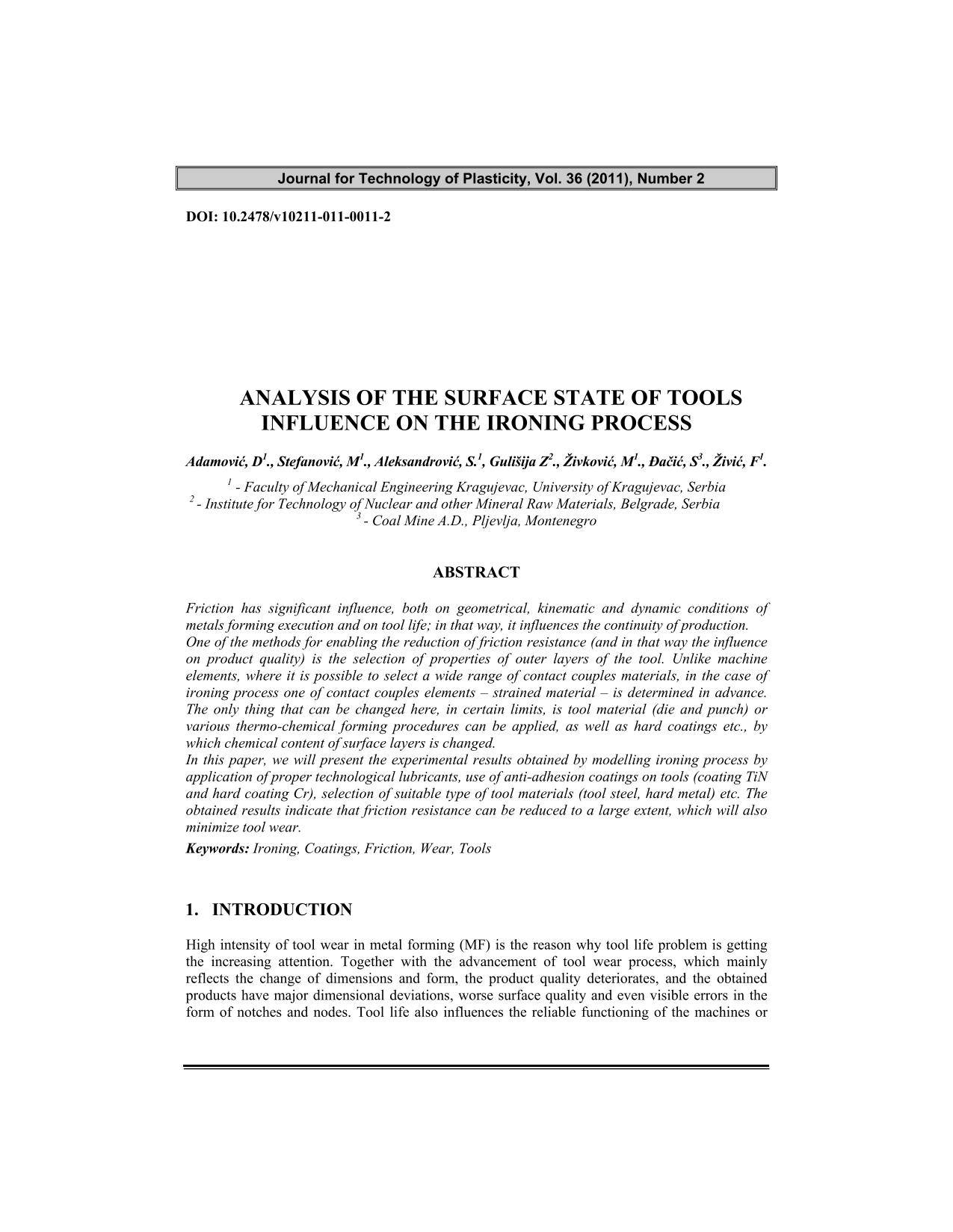
Published 2011-12-30
abstract views: 12 // Full text article (PDF): 6
Keywords
- Ironing,
- Coatings,
- Friction,
- Wear,
- Tools
How to Cite

This work is licensed under a Creative Commons Attribution 4.0 International License.
Abstract
Friction has significant influence, both on geometrical, kinematic and dynamic conditions of metals forming execution and on tool life; in that way, it influences the continuity of production. One of the methods for enabling the reduction of friction resistance (and in that way the influence on product quality) is the selection of properties of outer layers of the tool. Unlike machine elements, where it is possible to select a wide range of contact couples materials, in the case of ironing process one of contact couples elements – strained material – is determined in advance. The only thing that can be changed here, in certain limits, is tool material (die and punch) or various thermo-chemical forming procedures can be applied, as well as hard coatings etc., by which chemical content of surface layers is changed. In this paper, we will present the experimental results obtained by modelling ironing process by application of proper technological lubricants, use of anti-adhesion coatings on tools (coating TiN and hard coating Cr), selection of suitable type of tool materials (tool steel, hard metal) etc. The obtained results indicate that friction resistance can be reduced to a large extent, which will also minimize tool wear.

